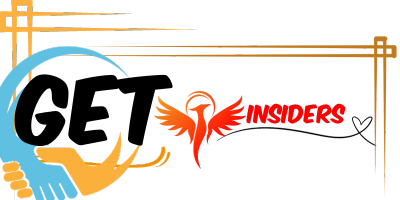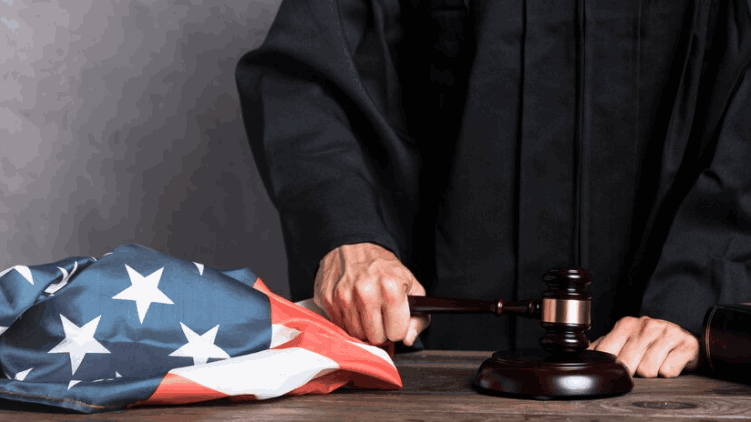The C.W. Park USC lawsuit has become a well-known legal issue in higher education in recent years, igniting challenging but vital discussions about sexual misbehavior, discrimination, and institutional responsibility. Several women filed a USC lawsuit against the university and Professor C.W. Park of the University of Southern California (USC lawsuit) in 2019. The case includes disturbing claims of decades-long sexual assault, harassment, and mistreatment.
Even though the specifics of this intricate case are still being worked out, the C.W. Park USC lawsuit offers a sobering case study of the urgent issues that universities and colleges face. Through an analysis of the USC lawsuit’s history, allegations, principal parties, and possible outcomes, important takeaways and revelations can be extracted to inform positive changes in higher education.
Context of the C.W. Park USC Lawsuit Case
Four women filed a complaint against the institution and a well-known professor at the Marshall School of Business in April 2019, sparking the C.W. Park USC case. The plaintiffs, who were all graduate students and employees at USC during their time there, made allegations of sexual assault, harassment, and discrimination against Park.
The lawsuit states that Park has been accused of misbehavior since 2003, with numerous allegations supporting this claim. The plaintiffs contend that although USC authorities were aware of Park’s improper behavior in the past, they did not take any action to stop it, which allowed for other abuses of power.
USC initiated termination procedures against Park in June 2019, but she was already placed on leave when the lawsuit surfaced. However, Park could maintain his emeritus faculty position and associated benefits as he decided to retire voluntarily in the middle of the proceedings. The university acknowledged that the legal procedure would continue but hoped Park’s retirement would bring finality.
Charges Made Against USC
The lawsuit not only targets Park as a lone sexual predator but also USC as an organization for its alleged collusion and disregard for the safety of its most vulnerable pupils.
The plaintiffs claim that over a long period, USC administrators—especially those at the Marshall School of Business—were informed about Park’s wrongdoing on multiple occasions. But instead of providing appropriate supervision and responsibility, they allowed Park’s behavior to go unchallenged. Plaintiffs allege USC put Park’s fundraising capacity ahead of its students’ safety.
The lawsuit claims that although Park’s actions were practically “open secrets” on campus, USC declined to take any significant action until severe public criticism surfaced decades later. The plaintiffs claim that this deliberate institutional indifference allowed for long-term injuries.
By filing a lawsuit, the victims hoped to hold USC and its authorities responsible for allowing Park to continue his sexual harassment of women and for consistently providing scant attention to their concerns.
Necessary Parties to the Lawsuit
The C.W. Park USC litigation has drawn much interest because of the involvement of multiple well-known individuals. Everybody engaged in this discussion has the power to change things.
C.W. Park, a well-known management lecturer at the USC Marshall School of Business, is our first example. Park has made a name for himself as one of the best academics in the consumer behavior and marketing domains.
USC, one of the nation’s best universities, disagrees. In contrast to the accusations against a USC professor, the school has an illustrious history of academic success.
It’s also critical to remember that the plaintiff, a graduate student from Korea, asserts that she experienced discrimination when enrolled in Park’s course.
Additionally, attorneys are defending both sides in this dispute. At every stage of the legal process, these attorneys represent their client’s best interests by drawing on their expertise and experience.
It’s important to remember that this conversation immediately impacts the students. These accusations may have put undue pressure on students who trusted USC or Professor Park.
Monitoring all parties engaged in this case will be essential as time passes since their actions may significantly affect the result. Considering the contributions of all significant parties, it may be possible to gain a deeper understanding of this complex topic without drawing any hasty judgments or generalizations.
Park and USC’s Responses and Reactions
Due to the legal dispute’s complexity, C.W. Park and USC have offered a range of answers. Throughout the trial, Park has refuted every claim brought against him. His statements suggest that he thinks these charges are untrue and part of a bigger plot to damage his reputation.
But USC has adopted a more measured stance. Officials from the institution have stated that they will look into misconduct claims made by instructors. They often emphasized wanting the school to be a secure and friendly place for the children.
As the case progressed, detractors of USC’s handling of Park’s prior accusations surfaced. Many people find it difficult to understand why, if there were concerns, his behavior was not addressed sooner. While outlining their actions thus far to reinforce their policies and procedures, USC admitted they could have handled these concerns more effectively.
Park and USC’s responses reveal how seriously they take this legal dispute. A great deal of relationships and trust were destroyed within the organization even after each party presented their case.
Effects on Students and the University
Students and the institution are still dealing with some of the aftermath of the CW Park USC lawsuit. In light of the accusations against Park and the university, many have started to doubt USC’s capacity to preserve a morally sound learning environment.
It makes sense that the current pupils are apprehensive and uneasy about what may come next. They never imagined attending USC would result in a legal dispute, but here they are. They are wondering if they are receiving a quality education at this institution.
Furthermore, prospective new Trojans may be second-guessing themselves. The unfavorable publicity surrounding the case may impact future enrollment at the university.
These outcomes may also make the University of Southern California alums feel deceived. Their faith in the institution’s capacity to handle complaints about improper behavior has diminished.
Furthermore, the financial implications must be considered. USC’s financial management concerns have tempered some benefactors’ enthusiasm for funding the university’s initiatives.
The implications of the CW Park USC Lawsuit for USC and its students are profound. This emphasizes the idea that no organization is impervious to scandal or misconduct. Suppose USC wants to win back its citizens’ trust in the future. In that case, it must enact more robust supervision procedures, encourage transparency in its decision-making procedures, and prioritize ethics.
Cracking the C.W. Park USC Lawsuit: Who the Real Players Are?
The C.W. litigation has gained prominence and is generating interest as it develops. Numerous necessary parties are involved in this judicial drama, all adding to the complex layers of the case. This investigation dissects the key players impacting the story and the lawsuit’s trajectory.
1. C.W. Park: The Perpetrator
The accuser, C.W. Park, is at the center of the case; his accusations started the legal process. Understanding Park’s viewpoint and intentions is crucial to understanding the case’s underlying premises.
2. Officials and Administrators at USC
Administrators and officials at the University of Southern California are held accountable for their decisions and actions. The development of the drama depends heavily on how they handle the legal process and react to the accusations.
3. Advocacy
Examine the functions of the legal teams in charge of C.W. Park and USC. Essential details about the legal dispute can be learned from the lawyers’ methods, arguments, and courtroom maneuvers.
4. Professional Eyewitnesses
Examine the experts who were called in to provide testimony on different parts of the case. Their judgments and analyses influence the body of evidence and the court’s and the public’s points of view.
5. Public figures and media pundits
Examine the impact public personalities and media pundits have had on the case. Their positive or negative analysis gives the story a new depth.
As we dissect the significant figures in the C.W. Park USC lawsuit, we traverse the complex network of roles, incentives, and viewpoints that characterize this judicial drama.

